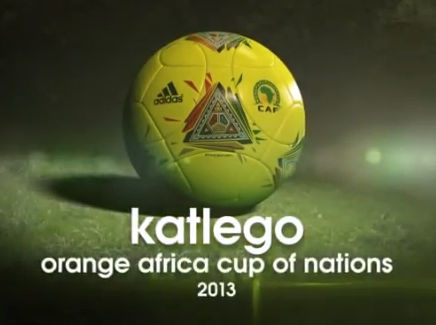2013 Africa Cup of Nations Finals – Postscript
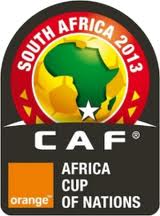 With the dust settling a week after the twenty ninth AFCON competition it just remains to look back on the events in South Africa before looking forward to the 2015 event in Morocco. How will the 2013 tournament be remembered? Off the field the organising committee had said their chief aim was “…full stadiums, full stadiums, full stadiums…” Whilst this didn’t come to fruition, the average crowd figures did show an increase. At the 2012 AFCON competition the thirty two games had an average attendance of 14,260 which rose to 22,781 in South Africa. However, despite the low prices and distribution of many free tickets, crowds were particularly disappointing in Nelspruit and Rustenburg in the Group stage games. The stadium at Mbombela Stadium in Nelspruit also came in for criticism as the pitch was frankly in an unacceptable condition for the Finals of an international competition. Elsewhere the other venues provided what looked to be reasonable surfaces, although the pitch for the Final between Nigeria and Burkina Faso looked a little below par after a major music concert had been held on it. Given that for many people watching the games is on television, things like empty stadiums and sand covered pitches, unfortunately gives a less than favourable impression and so send out negative messages about the competition. Hopefully, these issued will continue to be addressed for the 2015 competition in Morocco.
With the dust settling a week after the twenty ninth AFCON competition it just remains to look back on the events in South Africa before looking forward to the 2015 event in Morocco. How will the 2013 tournament be remembered? Off the field the organising committee had said their chief aim was “…full stadiums, full stadiums, full stadiums…” Whilst this didn’t come to fruition, the average crowd figures did show an increase. At the 2012 AFCON competition the thirty two games had an average attendance of 14,260 which rose to 22,781 in South Africa. However, despite the low prices and distribution of many free tickets, crowds were particularly disappointing in Nelspruit and Rustenburg in the Group stage games. The stadium at Mbombela Stadium in Nelspruit also came in for criticism as the pitch was frankly in an unacceptable condition for the Finals of an international competition. Elsewhere the other venues provided what looked to be reasonable surfaces, although the pitch for the Final between Nigeria and Burkina Faso looked a little below par after a major music concert had been held on it. Given that for many people watching the games is on television, things like empty stadiums and sand covered pitches, unfortunately gives a less than favourable impression and so send out negative messages about the competition. Hopefully, these issued will continue to be addressed for the 2015 competition in Morocco.
On the field the competition got off to a slow start with a number of draws and some pretty drab games, before coming nicely to the boil in the last round of Group games and the knockout phase. The goals scored dropped from 76 (average 2.38 per game) to 69 (average 2.16); however, there was still high drama and shocks aplenty. Going into the Finals, the top four CAF ranked teams were Ivory Coast, Algeria, Mali and Ghana, with Zambia the holders. Algeria finished bottom of their Group and Zambia limply gave up the crown finishing only third in their Group. Ivory Coast again found the tag of favourites to heavy a burden and went out in the Quarter-Finals, whilst Mali and Ghana battled out the Third/Fourth place game. This meant that nations such as Cape Verde and Burkina Faso provided the story of the underdog, with Cape Verde cruelly losing to Ghana 2-0 in the Quarter-Finals and Burkina Faso making it to the Final. Credit also to South Africa who despite a torrid time leading up the Finals did reach the Quarter-Finals. The 2013 title went to Nigeria who were unexpected but worthy winners. After a solid Group stage with draws against Burkina Faso and Zambia, finishing with a victory over Ethiopia, The Super Eagle upped their game to put out Ivory Coast in the Quarter-Finals and comprehensively defeat Mali 4-1. Whilst the Final against Burkina Faso was no classic, two moments of quality saw then win 1-0. The first was sublime skill shown by Sunday Mba who scored the Nigerian goal in the first-half, and the second a world-class save from Nigeria’s keeper Vincent Enyeama from Sanou which maintained their advantage with seventeen minutes remaining. A third Africa Cup of Nations title for Nigeria, who will hope their young-side, will blossom to defend their crown in Morocco in 2015.
Below are details of the various awards handed out after the 2013 competition and the latest CAF rankings.
Awards
Player of the tournament: Jonathan Pitroipa (Burkina Faso)
Tournament Top Scorer: Emmanuel Emenike (Nigeria)
Fair Player of the tournament: Victor Moses (Nigeria)
Goal of the tournament: Youssef Msakni (Tunisia v. Algeria)
Team of the tournament:
Goalkeeper:
Vincent Enyeama (Nigeria)
Defence:
Bakary Koné (Burkina Faso)
Nando (Cape Verde)
Efe Ambrose (Nigeria)
Siaka Tiéné (Ivory Coast)
Midfield:
Jonathan Pitroipa (Burkina Faso)
Seydou Keita (Mali)
John Obi Mikel (Nigeria)
Victor Moses (Nigeria)
Forwards:
Asamoah Gyan (Ghana)
Emmanuel Emenike (Nigeria)
Following the 2013 AFCON competition the latest CAF Rankings are as follows (2013 AFCON Finalists in italics) :
|
Feb. 2013 |
Jan. 2013 |
Change |
|
|
1 |
1 |
0 |
Ivory Coast |
|
2 |
4 |
2 |
Ghana |
|
3 |
3 |
0 |
Mali |
|
4 |
9 |
5 |
Nigeria |
|
5 |
2 |
-3 |
Algeria |
|
6 |
10 |
4 |
Tunisia |
|
7 |
5 |
-2 |
Zambia |
|
8 |
8 |
0 |
Central African Republic |
|
9 |
23 |
14 |
Burkina Faso |
|
10 |
22 |
12 |
South Africa |
|
11 |
13 |
2 |
Sierra Leone |
|
12 |
6 |
-6 |
Libya |
|
13 |
15 |
2 |
Cape Verde Islands |
|
14 |
18 |
4 |
Togo |
|
15 |
11 |
-4 |
Egypt |
|
16 |
12 |
-4 |
Guinea |
|
17 |
17 |
0 |
Morocco |
|
18 |
7 |
-11 |
Gabon |
|
19 |
14 |
-5 |
Cameroon |
|
20 |
20 |
0 |
Senegal |
|
21 |
21 |
0 |
Uganda |
|
22 |
27 |
5 |
Congo DR |
|
23 |
30 |
7 |
Congo |
|
24 |
24 |
0 |
Benin |
|
25 |
19 |
-6 |
Angola |
|
26 |
25 |
-1 |
Niger |
|
27 |
28 |
1 |
Zimbabwe |
|
28 |
26 |
-2 |
Sudan |
|
29 |
16 |
-13 |
Equatorial Guinea |
|
30 |
33 |
3 |
Mozambique |
|
31 |
34 |
3 |
Malawi |
|
32 |
31 |
-1 |
Ethiopia |
|
33 |
29 |
-4 |
Burundi |
|
34 |
32 |
-2 |
Liberia |
|
35 |
37 |
2 |
Namibia |
|
36 |
38 |
2 |
Kenya |
|
37 |
36 |
-1 |
Tanzania |
|
38 |
35 |
-3 |
Botswana |
|
39 |
40 |
1 |
Rwanda |
|
40 |
39 |
-1 |
São Tomé e Príncipe |
|
41 |
41 |
0 |
Chad |
|
42 |
42 |
0 |
Gambia |
|
43 |
43 |
0 |
Lesotho |
|
44 |
54 |
10 |
Mauritania |
|
45 |
44 |
-1 |
Guinea-Bissau |
|
46 |
45 |
-1 |
Swaziland |
|
47 |
46 |
-1 |
Madagascar |
|
48 |
52 |
4 |
Mauritius |
|
49 |
47 |
-2 |
Comoros |
|
50 |
48 |
-2 |
Eritrea |
|
51 |
49 |
-2 |
Seychelles |
|
52 |
50 |
-2 |
South Sudan |
|
53 |
51 |
-2 |
Somalia |
|
54 |
53 |
-1 |
Djibouti |
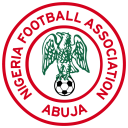 Looking at the players as the national anthems played, the Burkina Faso team looked more nervous than their West African neighbours Nigeria. Burkina Faso had Pitroipa in the team after his Semi-Final sending-off was overturned, whilst Alain Traoré was still not fit. For Nigeria, Victor Moses was passed fit, but Ikechukwu Uche replaced the injured Emmanuel Emenike. The pitch in Johannesburg whilst not as bad as that in Nelspruit, didn’t look as good as some of the other venues used in the tournament, and appeared to be still recovering from hosting a recent Red Hot Chili Peppers concert.
Looking at the players as the national anthems played, the Burkina Faso team looked more nervous than their West African neighbours Nigeria. Burkina Faso had Pitroipa in the team after his Semi-Final sending-off was overturned, whilst Alain Traoré was still not fit. For Nigeria, Victor Moses was passed fit, but Ikechukwu Uche replaced the injured Emmanuel Emenike. The pitch in Johannesburg whilst not as bad as that in Nelspruit, didn’t look as good as some of the other venues used in the tournament, and appeared to be still recovering from hosting a recent Red Hot Chili Peppers concert.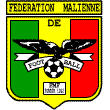
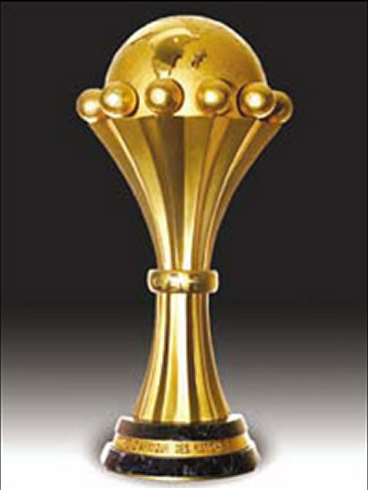 For both these teams, the qualification games they played in order to progress to the 2013 AFCON Finals must seem a lifetime away. Nigeria started their journey back in February 2012, when they played out a 0-0 with Rwanda in Kigali in the First-Leg of their First Round game. In June 2012 in the Second-Leg, goals from Ikechukwu Uche and Ahmed Musa saw The Super Eagles through 2-0 on aggregate. In September 2012, Nigeria travelled to Liberia, where the First-Leg game finished 2-2. The Second-Leg was a pretty comfortbale affair with Nigeria winning 6-1 with goals from Efe Ambrose, Ahmed Musa, Victor Moses (2), John Obi Mikel and Ikechukwu Uche. This 8-3 aggregate win saw Nigeria through to the Finals in South Africa.
For both these teams, the qualification games they played in order to progress to the 2013 AFCON Finals must seem a lifetime away. Nigeria started their journey back in February 2012, when they played out a 0-0 with Rwanda in Kigali in the First-Leg of their First Round game. In June 2012 in the Second-Leg, goals from Ikechukwu Uche and Ahmed Musa saw The Super Eagles through 2-0 on aggregate. In September 2012, Nigeria travelled to Liberia, where the First-Leg game finished 2-2. The Second-Leg was a pretty comfortbale affair with Nigeria winning 6-1 with goals from Efe Ambrose, Ahmed Musa, Victor Moses (2), John Obi Mikel and Ikechukwu Uche. This 8-3 aggregate win saw Nigeria through to the Finals in South Africa.
 Mali (0) 1 – 4 (3) Nigeria
Mali (0) 1 – 4 (3) Nigeria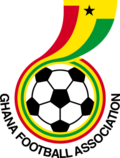 Ghana (0) 2 – 0 (0) Cape Verde
Ghana (0) 2 – 0 (0) Cape Verde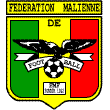 South Africa (1) 1 – 1 (0) Mali AET
South Africa (1) 1 – 1 (0) Mali AET
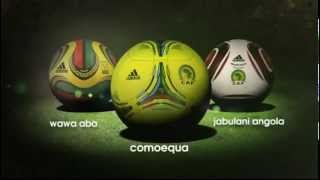 Adidas are once again providing a specially commissioned ball, having produced the Wawa Aba (2008 AFCON – Ghana), Jabulani (2010 AFCON – Angola) and Comoequa (2012 AFCON – Equatorial Guinea and Gabon). For the 2013 tournament in South Africa, the Katlego was created.
Adidas are once again providing a specially commissioned ball, having produced the Wawa Aba (2008 AFCON – Ghana), Jabulani (2010 AFCON – Angola) and Comoequa (2012 AFCON – Equatorial Guinea and Gabon). For the 2013 tournament in South Africa, the Katlego was created.